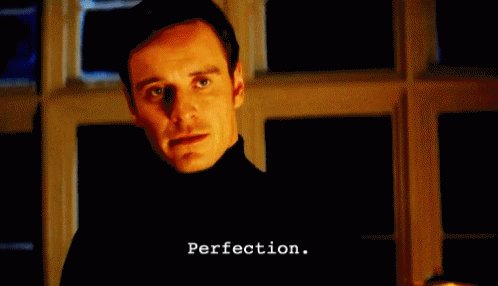The Bible
The trick is to jump around like a choose your own adventure.
Just popped in to find and upvote.
When I was in elementary school I actually tried to just read the bible. I didn’t get very far through Genesis before I gave up.
You didn’t even make it to the part where a man of god uses nature magic to summon bears to kill 42 children, or where a guy is mad that a father gives him the wrong daughter as property that he combines genocide with animal abuse!
For me, nothing tops the guy whose neighbors want to rape the angel that came to visit him, so he offers the crowd his daughters to rape instead.
That first bit is part of the Apocrypha. It’s not in the official bible.
It’s from Second Kings 2:23-25, which is part of the Torah and the official 66 books of the bible. Though some (most) translations say that the curse is in the name of the lord/god.
From there Elisha went up to Bethel. As he was walking along the road, some boys came out of the town and jeered at him. “Get out of here, baldy!” they said. “Get out of here, baldy!” He turned around, looked at them and called down a curse on them. Then two bears came out of the woods and mauled forty-two of the boys. And he went on to Mount Carmel and from there returned to Samaria.
Thanks for the specifics.
The dictionary
lol
The
dictionarydikshunaryDo they have those at the lie-berry?
Anything by Ayn Rand. She’s a terrible author and most people are more interested in showing that they could have read The Fountainhead than actually reading that unfun, meandering garbage.
I read The Fountainhead in a high school English class and then got super into Ayn Rand and read Atlas Shrugged and some of her other stuff on my own. What actually happened was that I was a child in the Florida Public School System and so 1) didn’t understand what capitalism was, 2) couldn’t recognize terrible writing, and 3) was enjoying how proud my dad was for once.
Now I’m in my 30s and I can’t bring myself to throw away books at all, but also refuse to give them away and put them back out into the world for other dumbasses and/or impressionable children to find. They live on a bookshelf in my back room strategically positioned so that even if someone did go into that room they’d have to dig through a bunch of French textbooks and ancient American Girl books to find them.
If anyone would like some garbage propaganda advocating for a society of psychopaths written in the style of your drunk uncle’s auto-transcribed voice memos, hit me up.
You should burn them for warmth so they finally serve a purpose
Jesus
People can just enjoy them for stories and not actually believe in what the writer wants them to believe.
I can personally attest to that as I have to do it with most fiction, including Ayn Rand stuff.
There are two novels that can change a bookish fourteen-year old’s life: The Lord of the Rings and Atlas Shrugged. One is a childish fantasy that often engenders a lifelong obsession with its unbelievable heroes, leading to an emotionally stunted, socially crippled adulthood, unable to deal with the real world. The other, of course, involves orcs.
-John Rogers
I tried to read the Fountainhead twice when I was a teenager and I never got more than a third of the way. It felt like watching an old person try to remember their shopping list
Yeah. My grandpa made me read Atlas Shrugged when I was in HS and it was so dumb it made me a communist. I did like the scene with the fast train on the green rails. Literally the only scene in the whole book with imagery.
Nothing killed libertarianism for 19 year old me like reading that trash.
Can you blame them? Even South Park made fun of how bad Atlas Shrugged is.
The Silmarillon - the yellow pages of middle earth
Not in my experience. 100% of people I know that have it, also have read it. We buy that because we’re Tolkien nerds. People who don’t want to read it don’t buy it. Also it’s not at all like yellow pages for looking stuff up, it’s more like the Bible I guess, a collection of mythological tales of old.
I guess there are some people that have inherited it, or just bought it for collecting, but I don’t think this is the main case.
It might be different for The History of Middle Earth, it’s huge and requires a lot of time, and it’s more yellow pagey as far as I understand. I have them but have not read much of it yet. (Maybe you meant these?)
I rarely check people’s bookshelves but my experience has also been that people either don’t even know what it’s really about or they absolutely love it.
But I guess it’s possible that some people buy it after reading LotR expecting more of the same and then give up after reading the first few pages of the Ainulindalë.
I sought that shit out and read every word. I gobbled that shit up. “The Middle Earth Bible” is 100% an accurate description of it.
As someone who has read the Silmarillion several times, any attempt at reading The History of Middle Earth peters out quite quickly.
That’s exactly my experience. It doesn’t help that I have the 12-in-3 book boxed edition that has almost see through thin pages… 😅
The Silmarillion I have also read multiple times though, both in English and German.
There is not much statistical evidence for my statement. Mostly from the people I know (though one actually read it, she is a true nerd) and myself (tried it but am probably not as much a middle earth fan as I thought)
It is literally easier to read the KJV of the Bible than the Silmarillon.
Easy != Fun
Strong disagree. I’ve read The Silmarillion. Sure I don’t remember much of it now, but at the time it was interesting and entertaining to me. It’s also not that huge a book, on the same order as one or two of the main LoTR books. If the KJV were in the same (normal) font size+width and paper thickness it would be Gigantic.
This is the best description of it =]
I can’t name very many people that have finished the whole dictionary
The book gave me a roller coaster of emotions, I never knew what was coming next!
You joke but I read the dictionary as a kid (and not for the naughty words); helped me expand my vocabulary and gave me knowledge of stuff I wouldn’t have known about at that age.
Hey, I did that as a kid too! My school was a glorified daycare, it was often the only reading material available, and it was somewhat more interesting than staring at the clock all day.
I think kids might. I remember reading it front to back when I was first really getting into literacy, hoping to get adults’ seemingly godlike intuition for spelling words. Still like to open it up from time to time to peruse a letter
Spoiler: the killer, it’s Zytugur!
When it defined Zyzzyva, I cried butterfly tears.
The Bible
CHECKMATE
This was my first thought, and I knew someone had to have said it already.
Literally 1984
Read this 2 years ago. Not the ending I was expecting but good book. Not a hard read.
You can really tell that people who reference that thing have never read it. Honestly if you have a legitimate criticism of Western society to draw from a dystopian novel there’s probably better choices. The totalitarianism in 1984 is in no way subtle or hidden from anyone, that’s a big part of the point of it.
Of course, to reference something relevant you have to have read things other than rage clickbait.
I think it didn’t need to be subtle for it to be realistic. You can see in certain communities just how unsubtle their hatred and stupidity is.
Yeah, exactly. Orwell was trying to paint a picture of how willingly people would accept gross oppression. You can see him talk about it in some of his letters IIRC.
In the West way more than just your TV watches you, but it’s done in a very invisible way and for now you won’t even hear back unless you join ISIS or something. Cynical forces manipulate the political process, but it’s out in the open except for being just boring and complicated enough to avoid too much publicity. None of this is very overtly oppressive.
They just look at it for their daily two minutes of hate haha
The Bible
reading the bible is a horrible experience. there’s paragraphs where the same story is being told in two different ways, things are repeated all the time. there’s entire chapters that just go “x is the son of y is the son of z is the son of a who’s the son of b and the son of c”.
there’s entire chapters that just go “x is the son of y is the son of z is the son of a who’s the son of b and the son of c”.
I can’t speak to how relevant this is to history in most parts of the world, but interestingly in places like ancient Ireland, genealogy was an important part of identity. Among the questions a stranger would be asked would be who his father is, what his clan is and what his profession is. Obviously today we value different aspects of identity, but historically at least in some places (and at the point I’m mentioning in history, Ireland was Christian) bloodline was part of how people knew you; it’s a fascinating look into historical mindsets.
Yeah except that it’s a work of fiction. Even that part is just made up to gives some kind of authority to a character.
This is why you don’t self-publish.
Sometimes yeah it’s frustrating reading it because some parts assume cultural familiarity with very ancient names or places. I think I remember in the book of Genesis an ancient military leader is named and it’s said he did some kind of trick to capture a town, but it doesn’t explain what he did or why.
Storytelling has gone through a lot of development over the centuries
When was the last time you heard of someone buying a bible?
My partner bought a study Bible for academic use a few months ago, and our roommate bought herself one (for actual worship use) a couple weeks ago?
Not as relevant as it used to be regarding this question, but…
War and Peace
My Godfather tried to read that to me in it’s entirety when I was 4 lol.
deleted by creator
I think I learned the naming stuff while reading Metro 2033, or maybe it inspired me to look it up. Much easier read than Tolstoy.
It’s actually not bad at all, especially if you’re into military history like I am. It’s basically just standard soap opera stuff interspersed with treatises on what war is really like. The worst part is that interminably long section about the fucking freemasons, thrown in for no apparent reason.
Read Anna Karenina you won’t regret it. I would argue it’s the best love story ever written.
Challenge accepted, added to the list.
For Christians, there’s one called The Bible.
Capital, clearly. Not a single anti communist has ever read it because they never once refute a single talking point from the actual book. But every anti communist acts like they totally understand what’s in the book and some go so far as to lie about having read it. And then you ask them what it says or why they’re anti communist and they just make shit up or parrot 1950s Nazi propaganda and pretend like that’s what’s in Capital or what communism is about.
It annoyed me the first few times it happened to me but now it just makes me laugh. Having a book on your shelf or knowing the title of it is not the same thing as reading it or understanding it
Marx didn’t consider human nature so he’s totally wrong

Fuck, he got us. I can’t argue with that!
I, Dagoth Ur, believe that the entirety of his theory rests upon a grievous error. He, in his folly, regarded labor as the solitary font of worth and, in his ignorance, failed to grasp that capitalism thrives not solely by the exploitation of laborers but also through the ceaseless march of technological advancement. He dared to belittle the other wellsprings of wealth: innovation, entrepreneurial spirit, and the unyielding progress of technology, all of which lie at the very core of his theory.
Curiously, passages within “Capital” and the “Communist Manifesto” speak of the global ascendancy of capitalism, prophesying the vanishing of all things traditional and the dissolution of feudal remnants. Therefore, I, Dagoth Ur, put forth the audacious proposition that we may indeed regard Karl Marx as the inaugural, true theorist of globalization.
Marx talks about most of what you just mentioned in the first chapter of Capital. Socially productive labor transforming nature is the source of value in any society. He also mentions rarity as a source of value, like I remember him specifically mentioning pearls as an example a few times.
He included machinery and technology as what he called “constant capital,” and the labor is the variable capital. To say Marx didn’t consider technology would suggest he was unaware of what a factory was and that he didn’t observe the industrial revolution as it was happening. He was born in 1818. He watched Germany in his childhood go from empty fields full of peasants to factories, railroads, and telegraph lines in his adulthood. You know what made that technology possible? Labor? And who operates that technology? Laborers. This is all cooked into his work.
I’d also like to point you over to the Grundrisse, the chapter called Fragment on Machines, where Marx even speculates on if machinery were all fully automated, saying laborers could move aside from production and just become just “watchmen.” This part is good:
“Capital itself is the moving contradiction, in that it presses to reduce labour time to a minimum, while it posits labour time, on the other side, as the sole measure and source of wealth […] On the one side […] it calls to life all the powers of science and of nature […] to make the creation of wealth independent (relatively) of the labour time employed on it […] On the other side, it wants to use labour time as the measuring rod for the giant social forces thereby created”
He’s saying capitalism would have a hard tike reducing labor time to zero through technological advancement, since it would defeat the concept of value itself. In simple terms, how would you even price anything if there was no labor cost involved? How would a capitalist sell their product or assign value to it? Who would they sell it to?
Hey look someone who didn’t read Capital talking about Capital.
Marx definitely wrote literally chapters about industrialization
not solely by the exploitation of laborers but also through the ceaseless march of technological advancement
interesting where does this technical advancement come from?
What a grand and intoxicating innocence to presume Marx did not consider these things
Capital, clearly. Not a single anti communist has ever read it because they never once refute a single talking point from the actual book
Almost no one has actually read capital it’s like the Bible hugely influential but almost no one is willing to actually read the thing
If you truly want to understand Marx this is probably the best way to get started… https://archive.org/details/Introducing_Marx/mode/1up
Without a shadow of a doubt the Bible.
No, reading the Gospels, Paul’s letters, Revelations, Genesis, Exodus, and selected Psalms doesn’t count as reading the Bible. Do you count reading 10 chapters of a 60+ chapter book as reading the book? Of course not.
I was raised in a Christian household, and I was told that when I turned 12 I could be baptized. I looked forward to, and on the summer I was 10, I decided I wanted to be ready. I sat down and read the bible, front to back. I got to the end, and I paused: this was nothing like what they were telling me! I decided to read it again through, certainly I missed something? At the end, I decided to work through again, one more time, and then I was no longer Christian, at least not like these other ones. Now I’m not at all, but I love being able to source the bible more accurately than my Christian family members.
I grew up in an evangelical house and I constantly get to wield the line: “I guess I took the wrong lessons” as my comeback to literally any political dispute and it is wonderful having the ability to actually quote the Bible when arguing with my child relatives
I wouldn’t say most people buy them, but Ulysses and Finnegans Wake. For me, they’re unreadable. Or, I should say I actually read them during a time when I was reading classics that everyone seemed to claim were great, but I didn’t know anyone who had actually read them. At the time I was doing it just to be able to say I did. A dumb reason.
I got nothing thoughtful out of either of them. There were some individual sentences and paragraphs that were fun to read just because of the alliteration and poetic flow, but they made no sense. A book written for others to read shouldn’t need external commentaries or a knowledge of the author’s life and mental state to understand.
Now if someone says they’ve read Joyce and not for a literature degree, I lose a bit of respect for them, as I did for myself, and as other people should for me. 0/10, not worth, would not buy again, would not read again
Oh phew. I studied English Lit at university and had to wade through bits of both. I used to feel like I was some sort of uncultured swine for not “getting” them. But honestly, I just don’t think they work as novels. As a piece of art, I guess, sure. Fine and modern art can look like nonsense without context, but often make sense when seen as part of a conversation with other artists and movements. If taken like that, fine, you do you, Joycey-boy, and write incomprehensibly. I’ll be over here with my Iain Banks and Ned Beauman, enjoying them.
A Brief History of Time - a fair number of people do read it but there’s a pretty big chunk of people that just want bookshelf clout.
I prefer the album “A Brief History of Rhyme” by MC Hawking.
I was looking for this. 15 years ago this would have been top of the list.
People don’t read popular science books? 🤨🤨
Okay, I admit, I am deeply perplexed by everything everyone is saying in this thread. Do people seriously keep books on bookshelves not for reading, but for decoration or to pretend they’re well-read? Why wouldn’t they just read the books?
Yes they do just buy them for decoration. If you are intellectually curious you’re in an extreme minority of people.
Which I find strange. Usually anti-intellectualism is open, up-front, and honest about what it is. People buying books and not reading them just to pretend they’re smart doesn’t seem like a thing that actually happens in real life, just a straw intellectual the willfully ignorant like to beat up.
Infinite Jest
Read it twice, absolutely love that book.
Fuck me it is dense.
I’m an avid reader and I find I have to take breaks every 20-30min with IJ and just let stuff settle. Otherwise I find myself reading the same passage several times while my mind wanders.
My mom is reading it! She said that it is confusing and messy, but wants to finish it anyway.
It honestly feels like something he wrote as a joke
As a jest, perhaps?





























